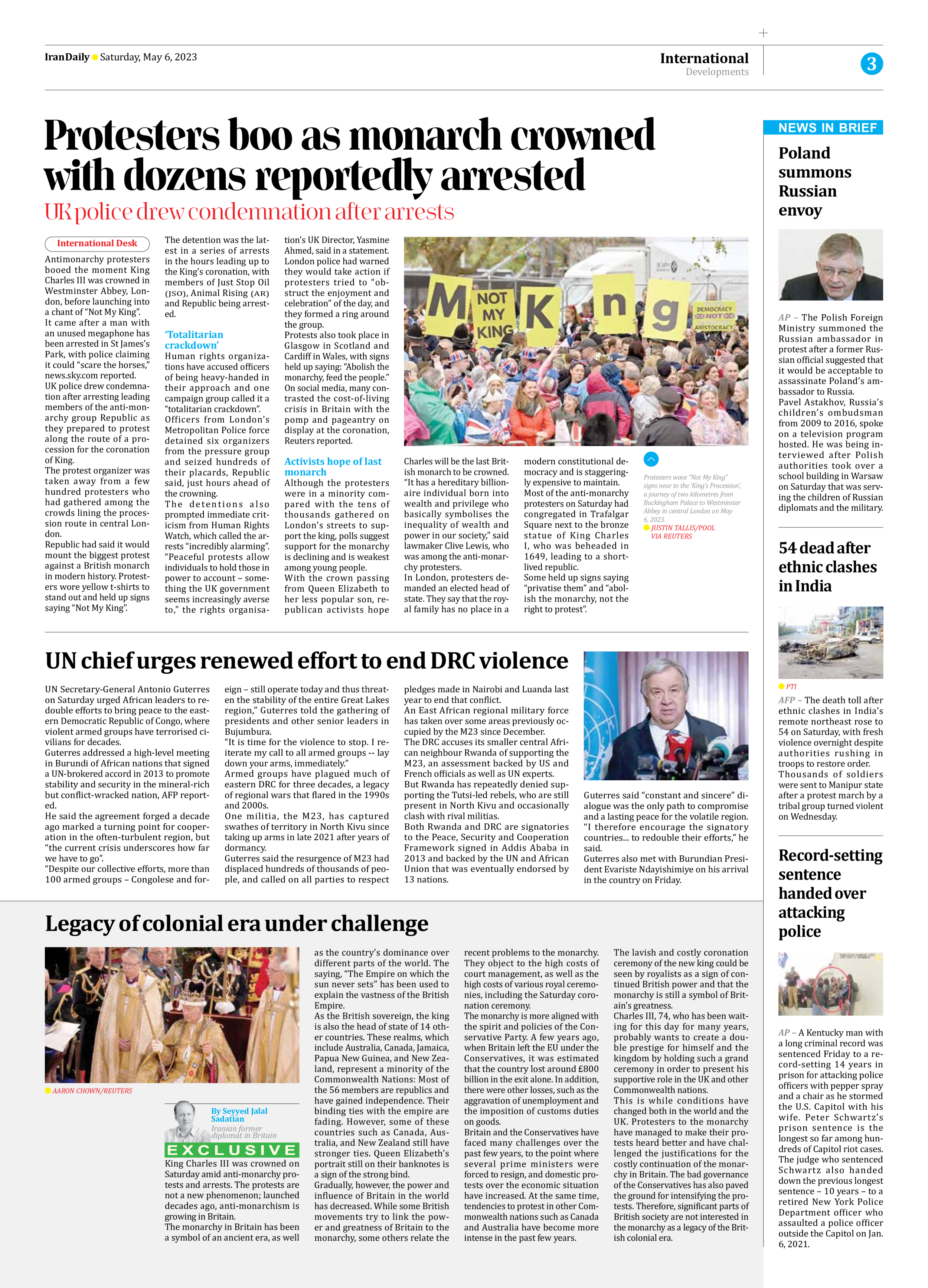
Protesters boo as monarch crowned with dozens reportedly arrested
UK police drew condemnation after arrests
Antimonarchy protesters booed the moment King Charles III was crowned in Westminster Abbey, London, before launching into a chant of “Not My King”.
It came after a man with an unused megaphone has been arrested in St James’s Park, with police claiming it could “scare the horses,” news.sky.com reported.
UK police drew condemnation after arresting leading members of the anti-monarchy group Republic as they prepared to protest along the route of a procession for the coronation of King.
The protest organizer was taken away from a few hundred protesters who had gathered among the crowds lining the procession route in central London.
Republic had said it would mount the biggest protest against a British monarch in modern history. Protesters wore yellow t-shirts to stand out and held up signs saying “Not My King”.
The detention was the latest in a series of arrests in the hours leading up to the King’s coronation, with members of Just Stop Oil (JSO), Animal Rising (AR) and Republic being arrested.
‘Totalitarian crackdown’
Human rights organizations have accused officers of being heavy-handed in their approach and one campaign group called it a “totalitarian crackdown”.
Officers from London’s Metropolitan Police force detained six organizers from the pressure group and seized hundreds of their placards, Republic said, just hours ahead of the crowning.
The detentions also prompted immediate criticism from Human Rights Watch, which called the arrests “incredibly alarming”.
“Peaceful protests allow individuals to hold those in power to account – something the UK government seems increasingly averse to,” the rights organisation’s UK Director, Yasmine Ahmed, said in a statement.
London police had warned they would take action if protesters tried to “obstruct the enjoyment and celebration” of the day, and they formed a ring around the group.
Protests also took place in Glasgow in Scotland and Cardiff in Wales, with signs held up saying: “Abolish the monarchy, feed the people.” On social media, many contrasted the cost-of-living crisis in Britain with the pomp and pageantry on display at the coronation, Reuters reported.
Activists hope of last monarch
Although the protesters were in a minority compared with the tens of thousands gathered on London’s streets to support the king, polls suggest support for the monarchy is declining and is weakest among young people.
With the crown passing from Queen Elizabeth to her less popular son, republican activists hope Charles will be the last British monarch to be crowned.
“It has a hereditary billionaire individual born into wealth and privilege who basically symbolises the inequality of wealth and power in our society,” said lawmaker Clive Lewis, who was among the anti-monarchy protesters.
In London, protesters demanded an elected head of state. They say that the royal family has no place in a modern constitutional democracy and is staggeringly expensive to maintain.
Most of the anti-monarchy protesters on Saturday had congregated in Trafalgar Square next to the bronze statue of King Charles I, who was beheaded in 1649, leading to a short-lived republic.
Some held up signs saying “privatise them” and “abolish the monarchy, not the right to protest”.







